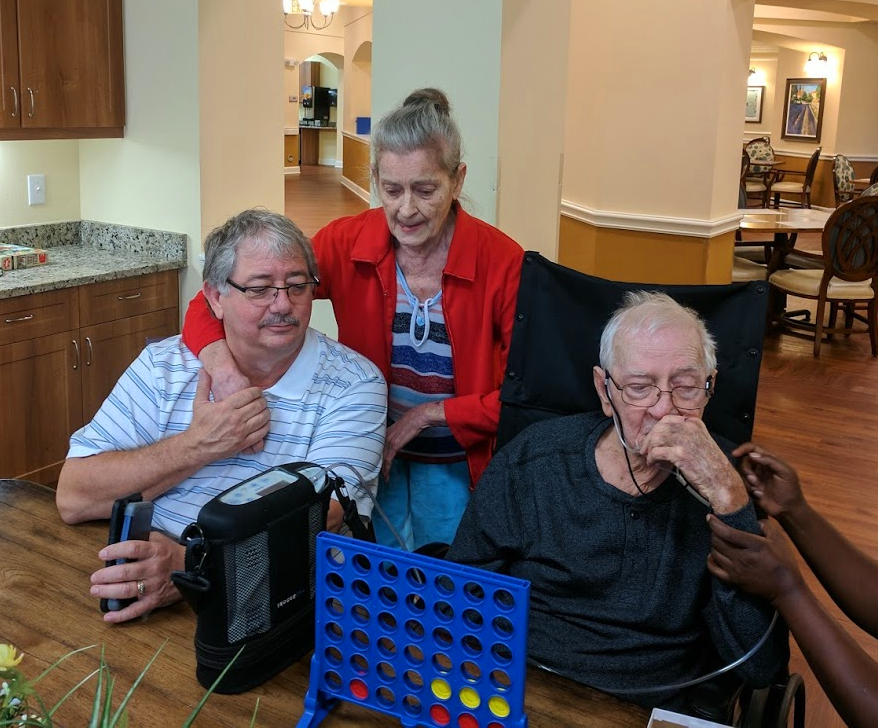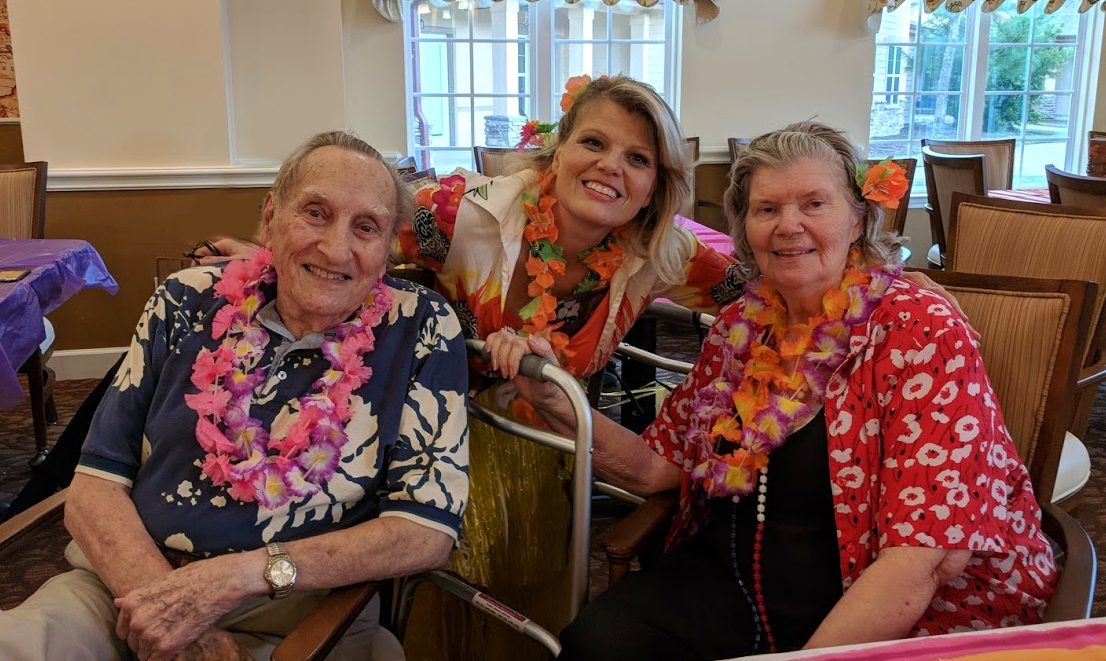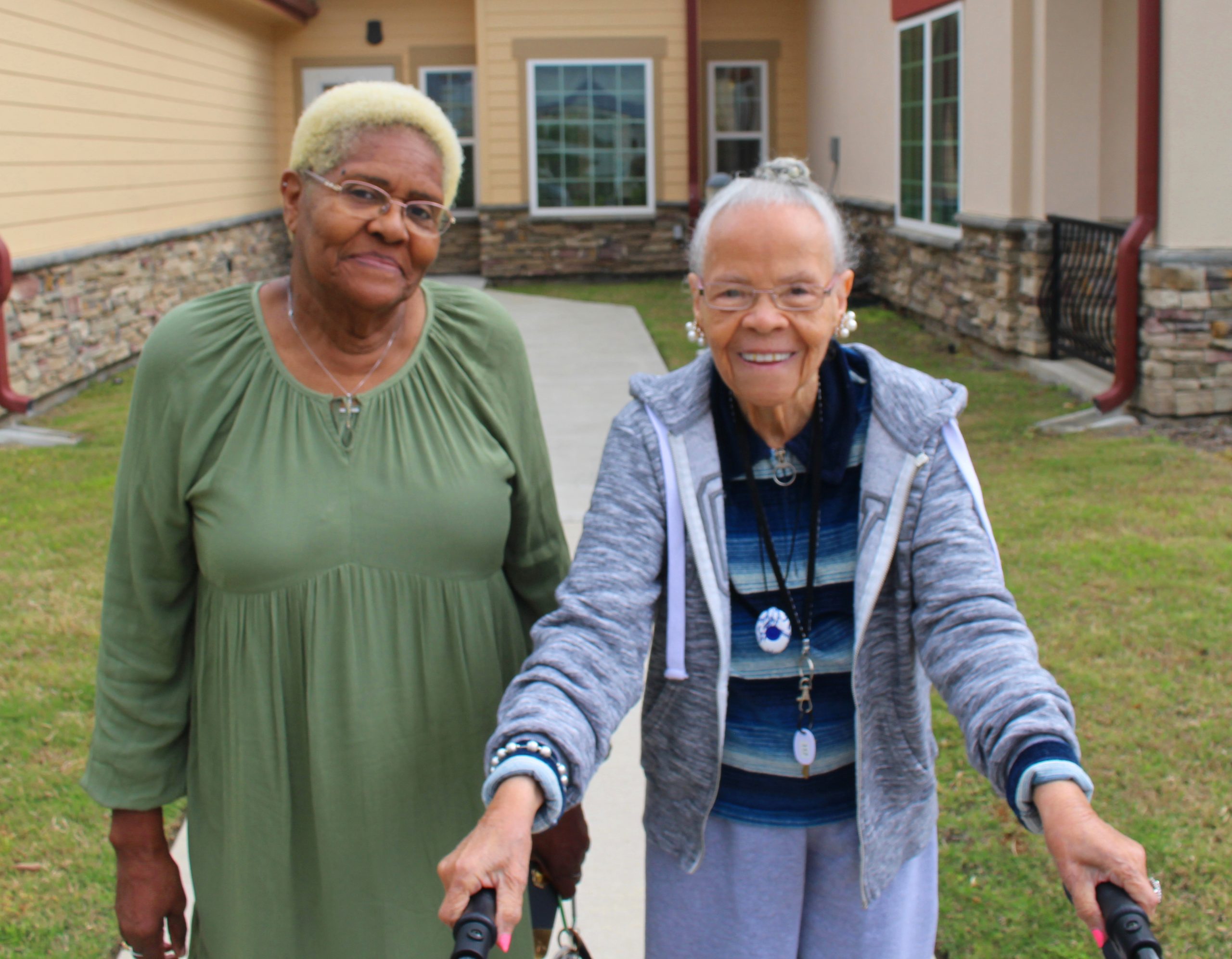Memory Care

Memory Care at Ella Springs considers the complexities of caring for your loved ones, and we formulate cognitive courses and programming that result in a much higher quality of life for individuals in our care. We incorporate our own propriety system geared toward assessing and assigning residents to specialized groupings in order to better meet their cognitive needs. These groups will feature tailored engagement ranging from, short and long term memory work, analytical and critical thinking, sequencing, through to a focus on sensory, olfactory, auditory and manual stimulation for the more cognitively impaired residents.
This system allows all residents to have a high level of engagement regardless of their cognitive level.

We are staffed 24 hours a day by staff who actively participate in routine dementia care training; this training helps advance the skills required to assist our residents sense of comfort and well-being, while still enabling them to participate in appropriate day to day interactions, safely.
For those loved ones and family members that need assistance with short term respite stay accommodations, we provide that as well, with fully furnished units with all utilities included. Ella Springs believes the comfort and quality of life of our residents is of utmost importance, because when it’s all said and done, it’s how we provide care for our residents, that matters the most.

The above allows us to target with specificity person centered care. It also allows us to consider the capabilities of each resident, thereby enhancing the value and effectiveness of our dementia programming and engagement. Consequently, we can enhance care and address the evolving needs of our residents over time.
And all of this is done with love for the resident. As the Bible says, “If I have the gift of prophecy and can fathom all mysteries and all knowledge, and if I have a faith that can move mountains, but do not have love, I am nothing.” 1 Corinthians 13:2
How to Know If Your Loved One Can Benefit from a Memory Care Residence
How do you know if your loved one needs memory care? It's difficult to answer, and there's no easy way to say it. Below are some tips and guidelines to help you recognize the most common signs of memory impairments.
Problems With Daily Activities
If your loved one has any troubles with daily activities, it may be time to consider memory care. Every day, your senior loved one should have no problem performing activities like dressing, eating, and drinking independently. If they are having trouble with these activities, this could signify that their memory loss has progressed to the point where they need help.
Inability to Handle Money
If your loved one suddenly finds themselves unable to handle their money at all – from forgetting which card they're supposed to use to make daily purchases to spending large amounts of cash on things they don't need – this could also be a sign that their memory loss has progressed.
Changes in Memory
Changes in memory are a common warning sign. When your loved one doesn't remember things they could have easily remembered before – like forgetting an important event, person, or item – this could cause concern. It doesn't necessarily mean they need memory care or an assisted living facility, but it could be a sign of Alzheimer's or dementia.
If you or a loved one are experiencing any of the symptoms above, it could be time to consider memory care. Our memory care facility can help your loved one with the tasks of daily living as well as provide social activities so they enjoy a better quality of life in a safe environment.
How Is "Memory Care" Different From Regular Assisted Living Options?
According to research, around 6 million U.S citizens are living with Alzheimer's, a type of dementia that is the most common cause of premature senility and which causes progressive deterioration of the brain. Memory care can help those living with Alzheimer’s suffer less and get the most out of life.
There are a few way that memory care differs from typical assisted living:
- Memory care units have special safety features that help ensure that the people living in these facilities remain safe. These features include obscured exits, motion-sensor lights, door alarms, and keypad entries. Regular assisted living facilities do not have such safety features.
- The staff members in memory care facilities are trained to offer person-centered supervision and care to dementia patients. For instance, regular assisted living staff are experienced in assisting people to carry out daily activities. The caring professionals who work in our memory care community also know how to help people living with dementia manage dementia-related behaviors such as aggression and wandering.
- The amenities in memory care units have simpler designs and layouts that help reduce confusion in dementia patients.
Benefits of Memory Care for Those With Alzheimer's or Other Dementia
For people living with Alzheimer’s or other forms of dementia, living in a memory care unit can help them maintain skills for longer and improve their quality of life through the use of dementia therapies. In addition, the environment in a memory care unit is safe and soothing for people living with dementia.
If you are looking for excellent memory care in Houston, contact Ella Springs about our move-in specials. Let us help your loved one live better and enjoy a better quality of life, even with Alzheimer’s or other forms of dementia.
Ella Springs serves The Woodlands, Spring, Tomball, Klein, Cypress, Louetta, Aldine, and Humble, TX, and would love to welcome your loved one to our memory care community. Contact us today to find out more about our Memory Care services.
